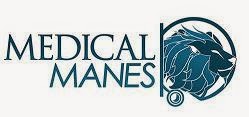Pavlov's dogs have taught a lesson to the world. Ring the bell and feed the dogs each time you do and eventually all you have to do is ring the bell and the dogs will salivate. There is no longer any requirement for effort by the dog, just ring the bell.
The politicians and their administridiots have learned well from the model. Unfortunately, physicians don't. So, every time it is thought desirable to manipulate physician behavior, they ring the money bell and the docs start to salivate. Fee for service had enabled physicians to be, if not the last, at least amongst the last of independent small-time entrepreneurs and to control their own destiny. Most of them worked hard and provided better service and value than most physicians do today. For years, a dwindling number of them clung desperately to the system. A few still do. They remind me of my father, a very small business man and a perfectionist when it came to his artisanship, who when offered a more lucrative job working for a mass production firm, turned it down flat. When I asked him why he wanted to continue struggling and what was the advantage of hanging on, for that's all he was doing, he answered, " I can work twice as hard for less money, but nobody can tell me how to do my job". Few would do that today.
So when politicians started conditioning the docs, they proved to be just as effective as Pavlov. They did such an excellent job of engineering attitudes that young physicians feel victimized if they can't join one of the many networks that continue to remodel health care in the model of industry. They feel left out, excluded. The stimuli, in the form of cash bonuses have become most effective but are now starting to be reduced. They will persist for a time yet while the docs are trained to follow whatever guidelines their masters see fit to impose on them but they will be relentless and the screw will continue to tighten. None of the administrative organizations which were created to protect our interests and the interests of the public seem to care. Physicians will have less and less influence in planning the future of medical care and all of the responsibility for it. Guidelines will continue to be generated and physician pay will increasingly be determined by how closely they are adhered to, regardless of individual knowledge and experience. Eventually, the very people who would benefit the profession and the public most, will be driven out of it. The state model will continue to slowly deteriorate. Somehow, somewhere in Canada some creative group of physicians and other health care professionals will devise a solution, but things will have to get much worse first. It certainly won't come from the present usually overpaid health care administration.

No comments:
Post a Comment